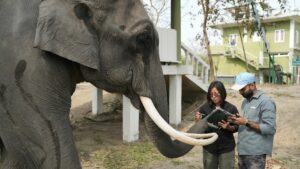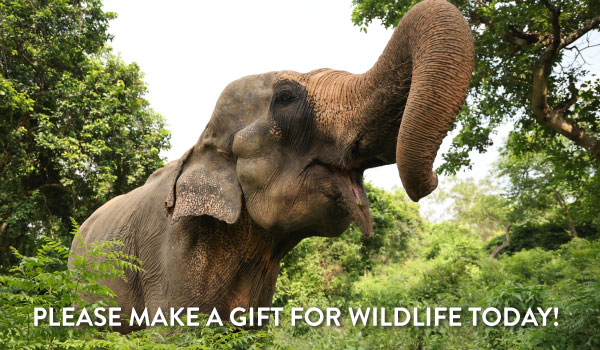In India, the survival of countless wild species hangs in the balance. Elephants chained in captivity, bears rescued from cruelty, leopards caught in conflict, and forests under threat, all these challenges call for urgent, united action. At Wildlife SOS, every rescue mission and every healing journey is made possible not just by our dedicated team, but also by the people and organisations who stand beside us. Among these allies, corporate partners hold a unique place. With their reach and resources, companies have the power to multiply impact and bring lasting change for animals.
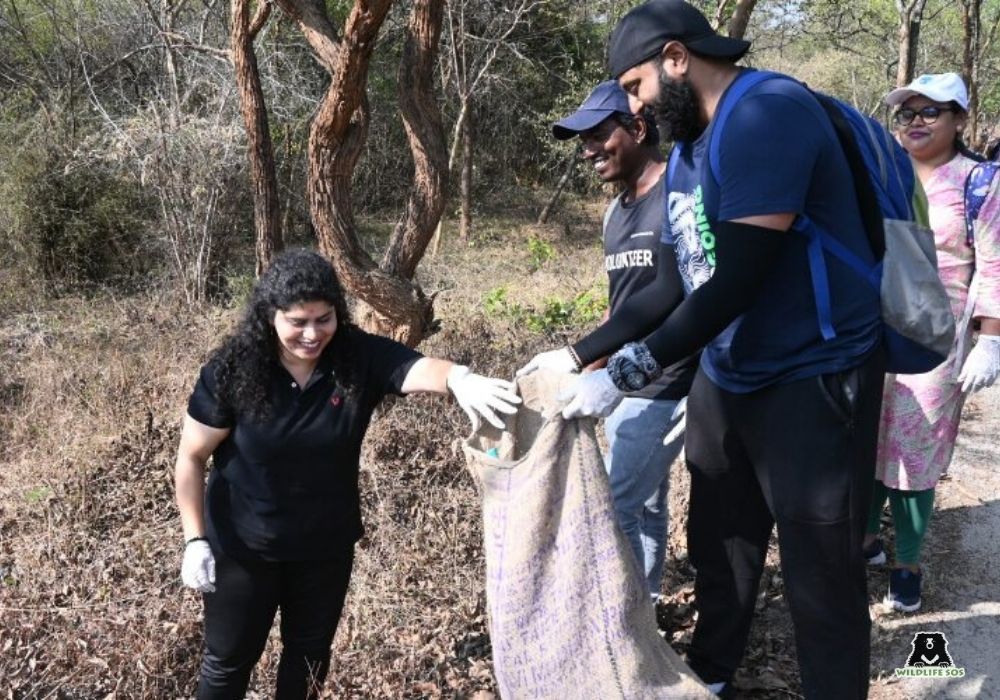
Over the years, collaborations with donors and corporations have already helped us achieve remarkable milestones, from expanding rescue facilities to building India’s 1st Elephant Hospital. These partnerships show us that when compassion meets corporate responsibility, real transformation becomes possible.
Here are five powerful ways businesses can join hands with Wildlife SOS and become part of India’s conservation story.
1. Corporate Volunteering: Hands-on Impact for Employees
When corporate workers step out of boardrooms and concrete jungles into nature, something knocks on the doors of their minds. Corporations express their wish to tie up with organisations like Wildlife SOS for volunteering opportunities or programmes that give employees a chance to directly engage and support their planet’s co-inhabitants. Our centres invite corporate employees to come together and build exciting enrichment structures for our rescued sloth bears, such as climbing platforms or a food-based puzzle. We have hosted groups of colleagues planting trees around our elephant centres in Uttar Pradesh and engaging in clean-up drives in Karnataka. Companies from Gurugram, Agra, Mathura, Mumbai, Pune, Hyderabad, Bengaluru, and Delhi-NCR reach out to volunteer with us. They get the opportunity to listen to our veterinarians and caregivers who share real stories about why we should care for India’s most vulnerable species. These experiences provide not just a scope for team-building, they also create memories, foster empathy and instil in people a sense of pride in being part of a company that values compassion for wildlife. For corporates, volunteering is not just a feel-good outing, but rather a way to develop more engaged and socially conscious employees.
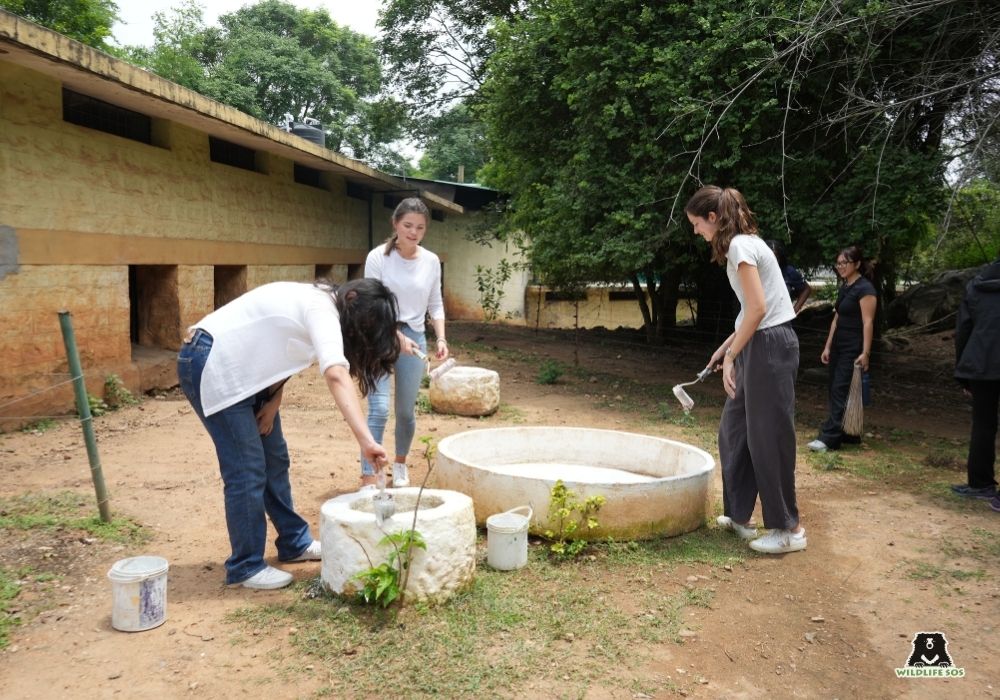
2. Animal Sponsorships: A Collective Commitment
For companies that want to make a direct difference, sponsoring an animal is one of the most rewarding ways to give back. Many corporations have come forward to adopt elephants, bears, or leopards, pooling resources to provide lifelong care. Take the case of elephants rescued from years of neglect and abuse. Sponsorship covers their food, which includes fruits, fodder, and supplements, along with veterinary treatments and enriching environments. Similarly, if businesses sponsor leopard care, it broadly covers supporting rescues from conflict, safe rehabilitation and long-term care. This is not only a cause of pride for the employees working for the company, but from a business perspective, too, it is a lucrative option, since sponsoring the care of a rescued animal sends a strong message that success and kindness are the two sides of the same coin.
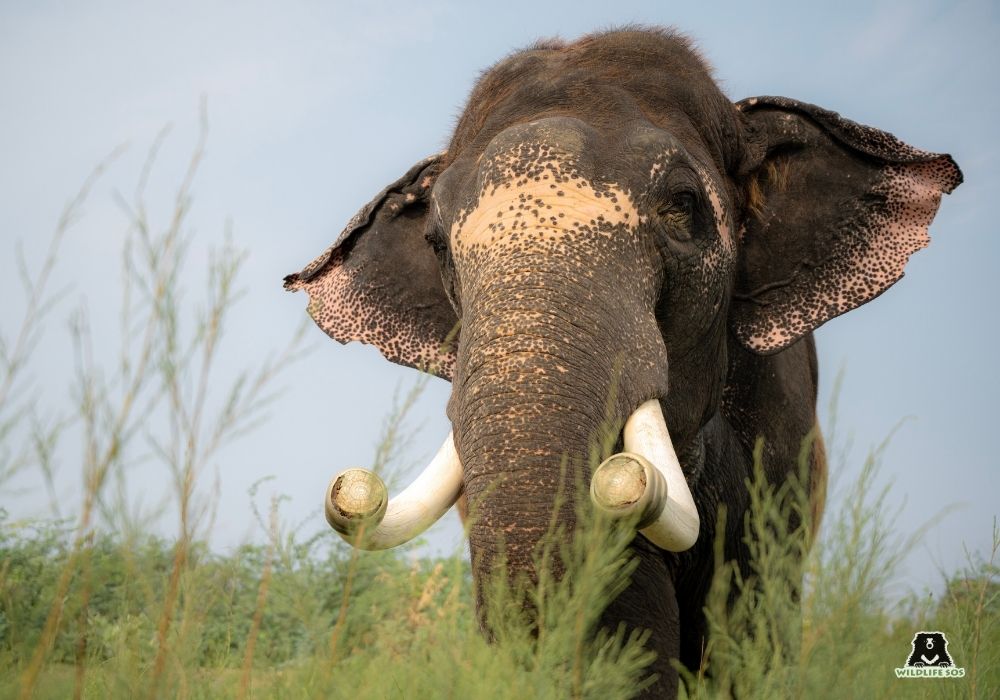
3. CSR Grants & Infrastructure Support: Building the Foundations of Change
Some of Wildlife SOS’s most effective projects have been possible through effective corporate partnerships and CSR grants. In India, CSR or Corporate Social Responsibility funding is not only a legal requirement, it’s a chance to create a lasting, meaningful and inspiring impact. At Wildlife SOS, CSR programmes have been crucial to improve our rescue facilities, purchase veterinary equipment and even fund our anti-poaching unit operations. These investments and initiatives are a needed support for animal welfare, and they also help us continue to build infrastructure and invest in technologies that can help us conserve wildlife. Think of a business, for instance, funding the construction of a new enclosure that closely resembles the wild, where our rescued sloth bears can roam around as they receive care, food and medical supervision — a stark contrast to their past, neglected life in captivity. Over the years, partners like Wallace Pharmaceuticals Pvt. Ltd., Upadhyaya Foundation, Star India, Disney, and Fondation Brigitte Bardot have generously supported enclosure construction and enhancement, helping us expand safe and naturalistic spaces for rescued elephants, leopards, and bears. These are not just ideas; they are real, life-changing results for us. Partners such as JP Morgan & Chase, which provided vital medical equipment, and Northern Trust and Vetoquinol, which contributed vehicles to support rescues and field operations, have strengthened our ability to respond swiftly to wildlife in distress. For corporations, CSR partnerships also leave a legacy of leadership. They demonstrate to stakeholders, clients, and communities that the company is committed to a future where development and conservation go hand in hand.
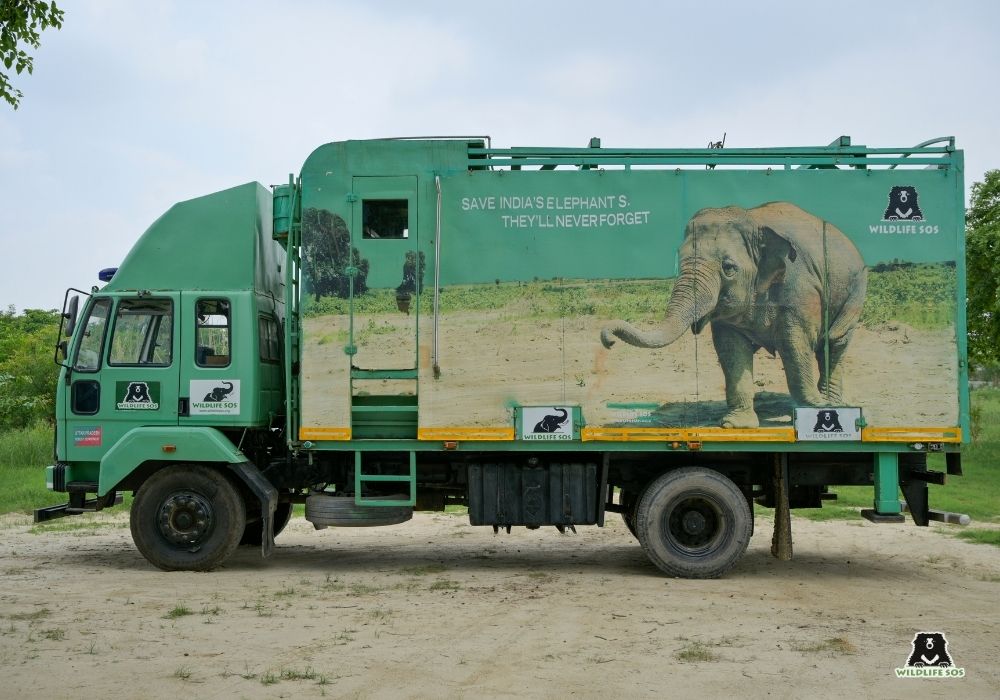
4. In-kind Support & Expertise Sharing: Beyond Monetary Contributions
Not every partnership has to involve finances. Oftentimes, at Wildlife SOS, the most innovative contributions come from in-kind support and sharing knowledge. In the past, companies have come forward and supported us by donating solar panels to power our centres, with renewable energy support from Capco, Western Digital, Disney, and Adobe, as well as veterinary equipment to improve animal care, and even vehicles essential for animal upkeep and welfare. Additionally, Rakuten has extended invaluable website support, helping us enhance our digital presence and outreach. Companies and businesses can provide free services, legal advice, marketing campaigns, or IT support, allowing our team to focus on rescues and animal care. In recent years, several partners have helped us develop digital tools and mobile applications that streamline our field operations, provide website maintenance and technical upgrades, and even explore AI-based solutions to improve wildlife monitoring and data management. The impact of these massive contributions is highly significant to sustaining an NGO. For Wildlife SOS, these have let us direct financial donations to where they will yield the most beneficial results. For companies, this is also an opportunity to demonstrate that innovation can serve a purpose, where technology and expertise directly improve lives, both animal and human.
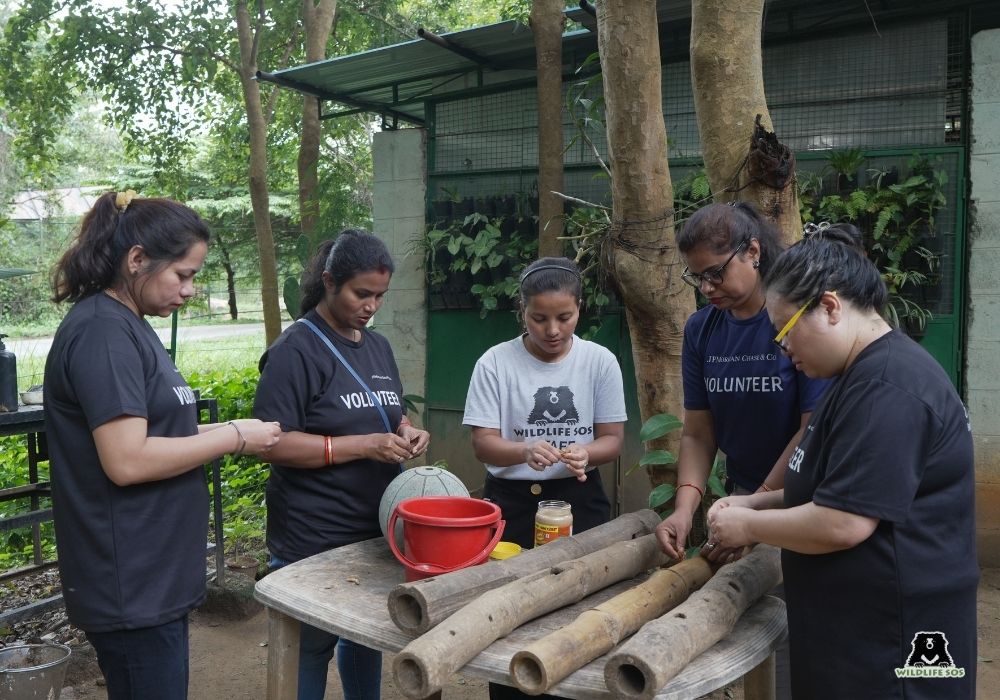
5. Awareness & Advocacy Campaigns: Amplifying Voices for Wildlife
Every Wildlife SOS campaign, whether it seeks to end elephant rides, protect sloth bear habitats, or stop poaching, depends on awareness. Corporations are vast communities of people, and engaging them can create ripple effects far beyond what NGOs can achieve alone. We have been focusing on innovative and interactive sessions with groups of employees, where we engage them in eye-opening discussions and hands-on activities, like seed ball making, leaving a unique and lasting impact on the participants. These sessions give Wildlife SOS the opportunity to share knowledge that needs to be known and spread, reviving sensitivity towards wildlife and nature in a world grappling with human–wildlife conflict. These awareness and engagement efforts have been further strengthened by tree plantation initiatives supported by Suven Pharmaceuticals Ltd. and Buimerc India Foundation, who joined hands with Wildlife SOS to restore green cover and foster coexistence. Such collaborations demonstrate how businesses can connect their people to the values of compassion and sustainability while amplifying Wildlife SOS’s message.
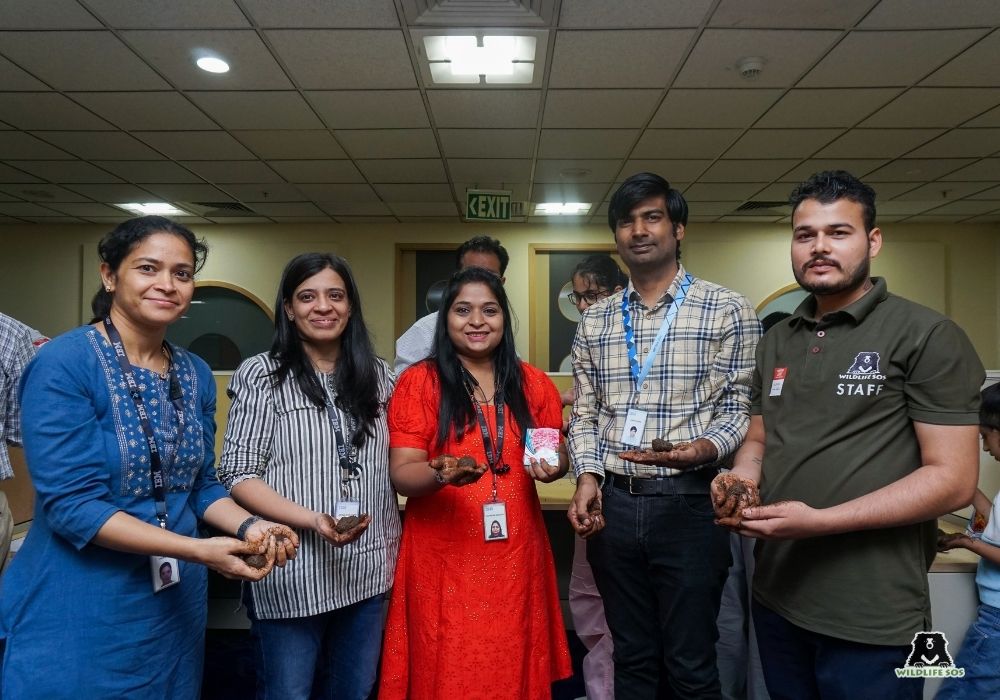
A Partnership That Saves Lives
At Wildlife SOS, every rescue is a story of collaboration. From an elephant walking free after decades of chains, to a leopard cub safely reunited with its mother, to a bear cub saved from poachers, none of this would be possible without the collective power of individuals and organisations who choose to act. While our rescues are carried out in close coordination with the forest department and other authorities, the continuing care and rehabilitation of these animals depends on funds generously contributed by corporates, along with support from individuals and partners who believe in giving them a second chance at life. For companies, partnering with Wildlife SOS is more than philanthropy. It’s a chance to be part of something bigger, to align business goals with values of empathy, responsibility, and social good. The benefits are profound: stronger teams, inspired employees, and a meaningful legacy of compassion. And that’s not all. A company’s values are reflected in such activities, leading it to acquire and sustain clients and customers who laud their efforts. The challenges facing wildlife are urgent, but so are the opportunities to become more proactive. By stepping forward today, corporations can prove that commerce and compassion are not opposites. They are allies in building a better tomorrow, for animals, for people, and for the planet we share.
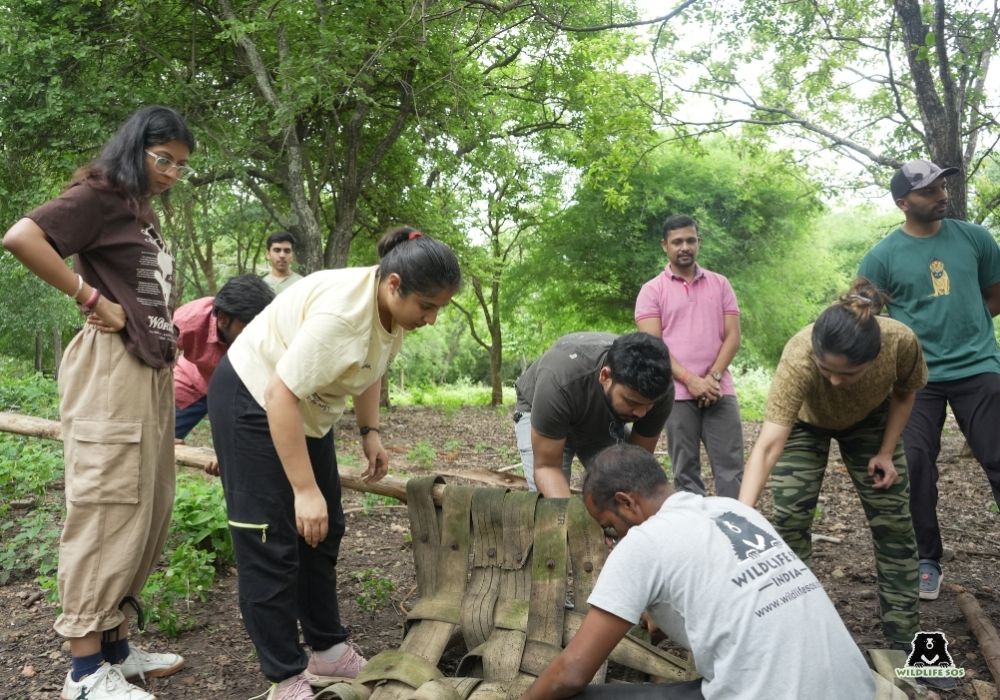
When considering the management of socially responsible activities of enterprises, one cannot disconnect the relationship between CSR and wildlife conservation. With steady support from corporates, we will be able to rescue more animals in need and provide them with long-term care and treatment at our rescue centres. Therefore, we welcome corporate organisations from all backgrounds to closely be a part of this life-changing work by understanding our efforts towards animal conservation through Corporate Employee Engagement programmes. For more details on Wildlife SOS’s outreach activities through CSR initiatives, you can reach out to us at sandhi@wildlifesos.org.
Feature image: Wildlife SOS/ Hemanta Chakma


